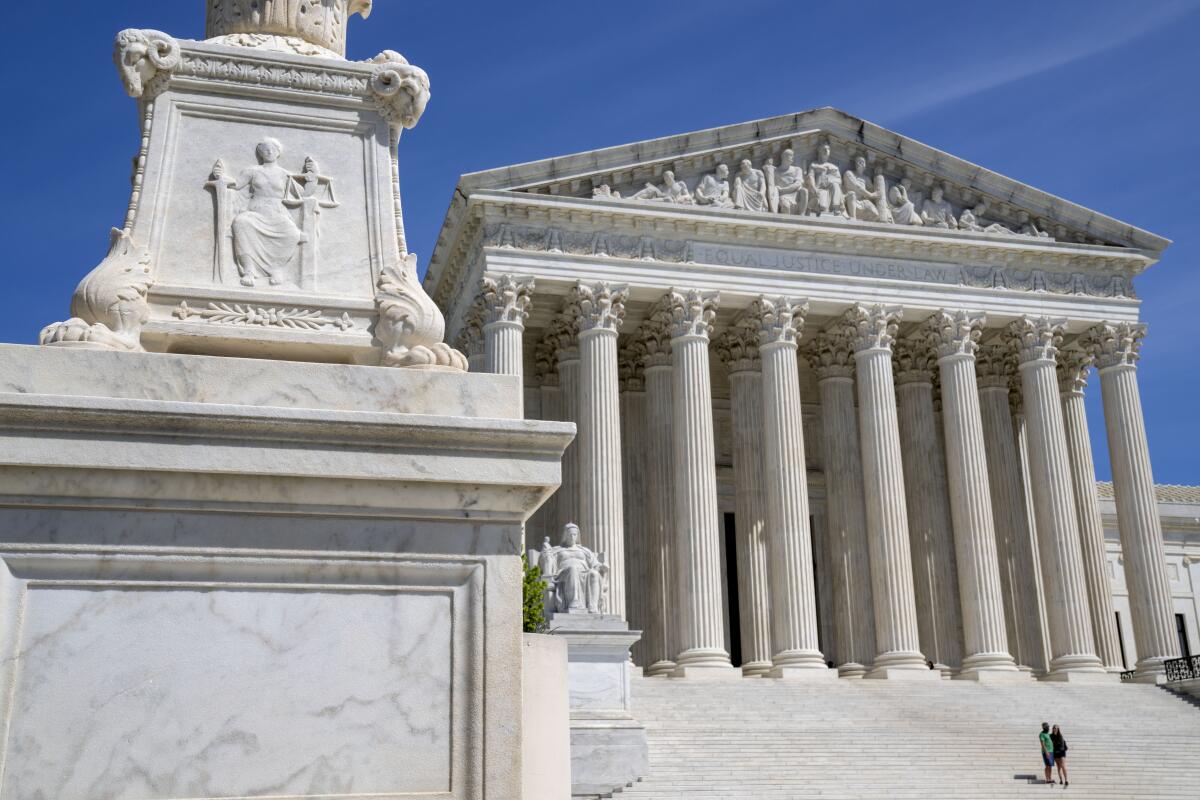Letters to the Editor: Did the Supreme Court save itself with its Voting Rights Act decision?

- Share via
To the editor: Is this another “switch in time that saved nine”? Perhaps it is a stretch to compare last week’s surprise ruling on the Voting Rights Act to a decision from 1937, but I see a comparison. (“Why today’s Supreme Court decision on voting rights is such a shock,” Opinion, June 8)
On June 8, the court upheld the broad reach of the Voting Rights Act in Alabama, which could well result in the election of a Black Democrat to Congress. It could also result in the Democrats regaining control of the House.
Some Democrats have been urging President Biden to expand the court as a way to undo the control that conservative justices have been given recently. This decision, however, might take pressure off Biden to do so.
As for the “switch” mentioned earlier, in a 1937 case on the minimum wage, conservative Justice Owen Roberts changed sides in a narrow 5-4 ruling. It took the pressure off President Franklin D. Roosevelt to pack the court with liberal justices more amenable to his New Deal.
Lynn Lorenz, Newport Beach
..
To the editor: UC Berkeley Law School Dean Erwin Chemerinsky says the court “reaffirmed that the Voting Rights Act prevents racial discrimination in drawing election districts.” But he praises a decision that requires Alabama to draw another majority-Black congressional district.
From our founding, the power to redistrict has created much mischief, whether partisan or racial. Now, the Voting Rights Act is being used to ensure not that all eligible citizens can vote, but to insist on a particular result.
That is not democracy.
William N. Hoke, Manhattan Beach
..
To the editor: The lesson here is that the justices of the Supreme Court will try to find and apply the law as disclosed in the text of legislation and relevant precedent — so long as the individual justices have no personal financial or ideological interest in the outcome.
Here it seems that a majority of the justices had no such interest, allowing them to protect the voting rights of all Americans under the text of the legislation and relevant precedent.
Jack Quirk, Porter Ranch



